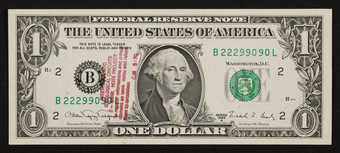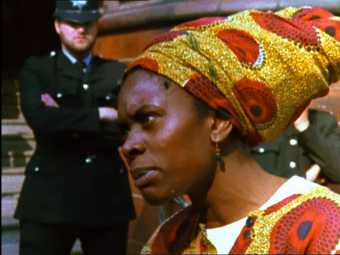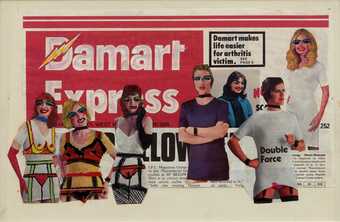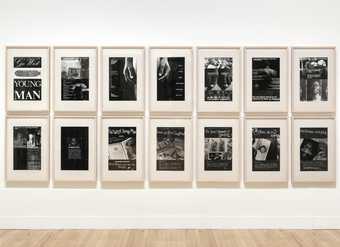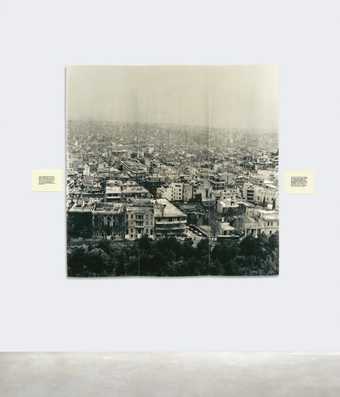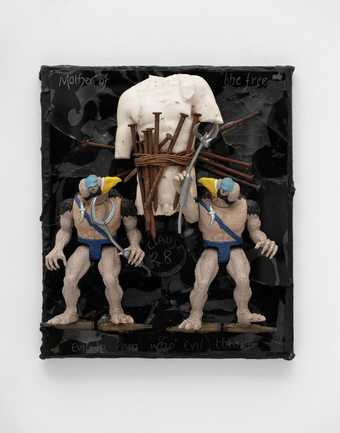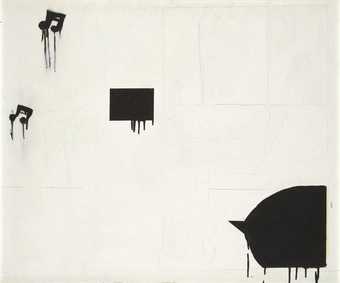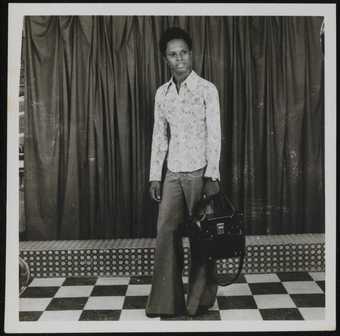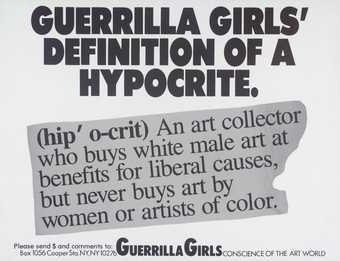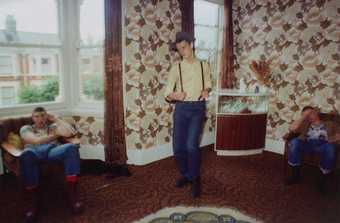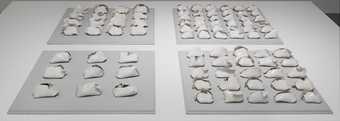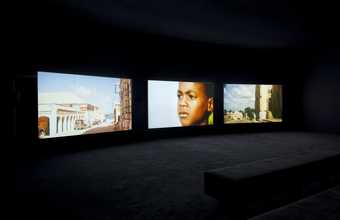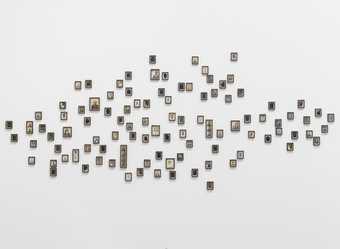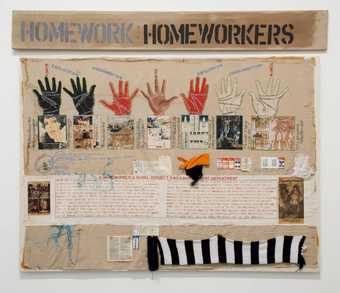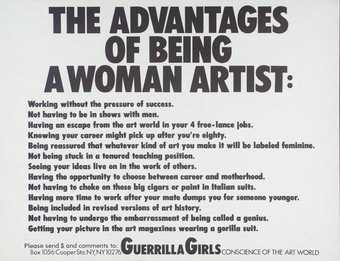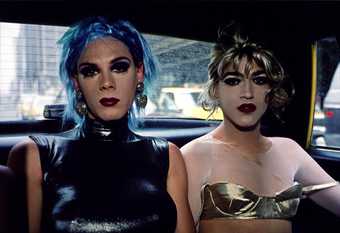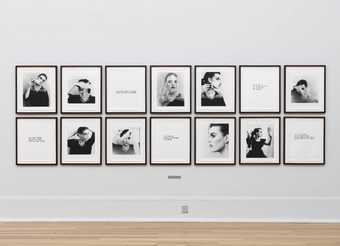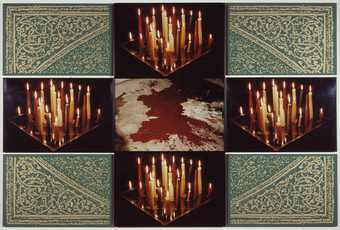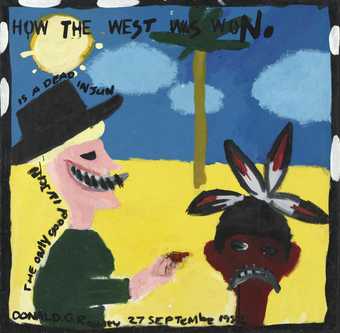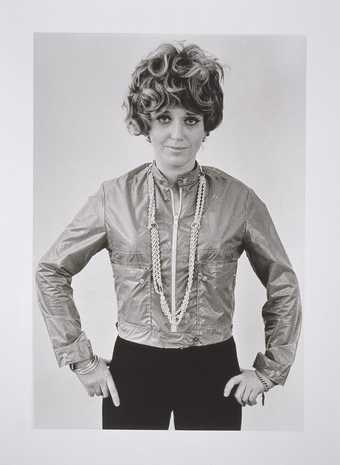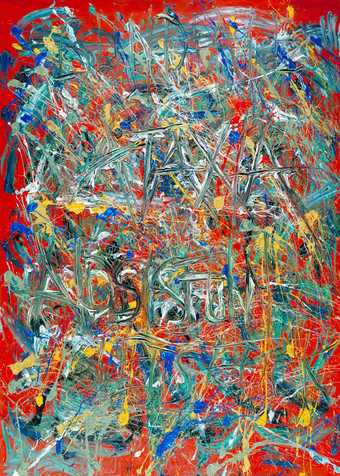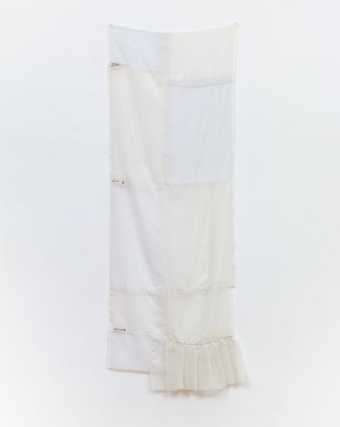Identity politics emerged out of the 1960s Black Civil Rights Movement, second wave feminism and gay and lesbian liberation. It was confrontational and asked questions about the kind of art that should be made and for whom in a post-colonial world where the history of art was being re-written to encompass a broader, less western-dominated perspective.
Identity politics
Identity politics is the term used to describe an anti-authoritarian political and cultural movement that gained prominence in the USA and Europe in the mid-1980s, asking questions about identity, repression, inequality and injustice and often focusing on the experience of marginalised groups
related terms and concepts
explore this term
-
Panel discussion: John Akomfrah
Chaired by Mark Fisher and including John Akomfrah, Kodwo Eshun (The Otolith Group) and Beatrix Campbell – the panel explores The Unfinished Conversation’s investigation of cultural, ethnic and personal identity through the memories of Stuart Hall.
-
Late at Tate Britain: Drawing on Jarman
Derek Jarman (1942–94) is best known as an iconoclastic filmmaker and polemical gay activist who channeled unparalleled energy into painting, writing, gardening and all manner of cultural activity.
selected artists in the collection
-
Linder
born 1954 -
Keith Piper
born 1960 -
Lorna Simpson
born 1960 -
Derek Jarman
1942–1994 -
Donald Rodney
1961–1998 -
Samuel Fosso
born 1962 -
Nan Goldin
born 1953 -
Hannah Wilke
1940–1993 -
Sir John Akomfrah CBE
born 1957
selected artworks in the collection
-
Lorna Simpson Photo Booth
2008 -
Margaret Harrison Homeworkers
1977 -
Guerrilla Girls The Advantages Of Being A Woman Artist
1988 -
Nan Goldin Misty and Jimmy Paulette in a taxi, NYC
1991 -
Linder She/She
1981, printed 2007 -
Rasheed Araeen Bismullah
1988 -
Donald Rodney How the West was Won
1982 -
VALIE EXPORT Identity Transfer 2
1968, printed late 1990s -
Derek Jarman Ataxia - Aids is Fun
1993 -
Leonilson (José Leonilson Bezerra Dias) The Penelope
1993

